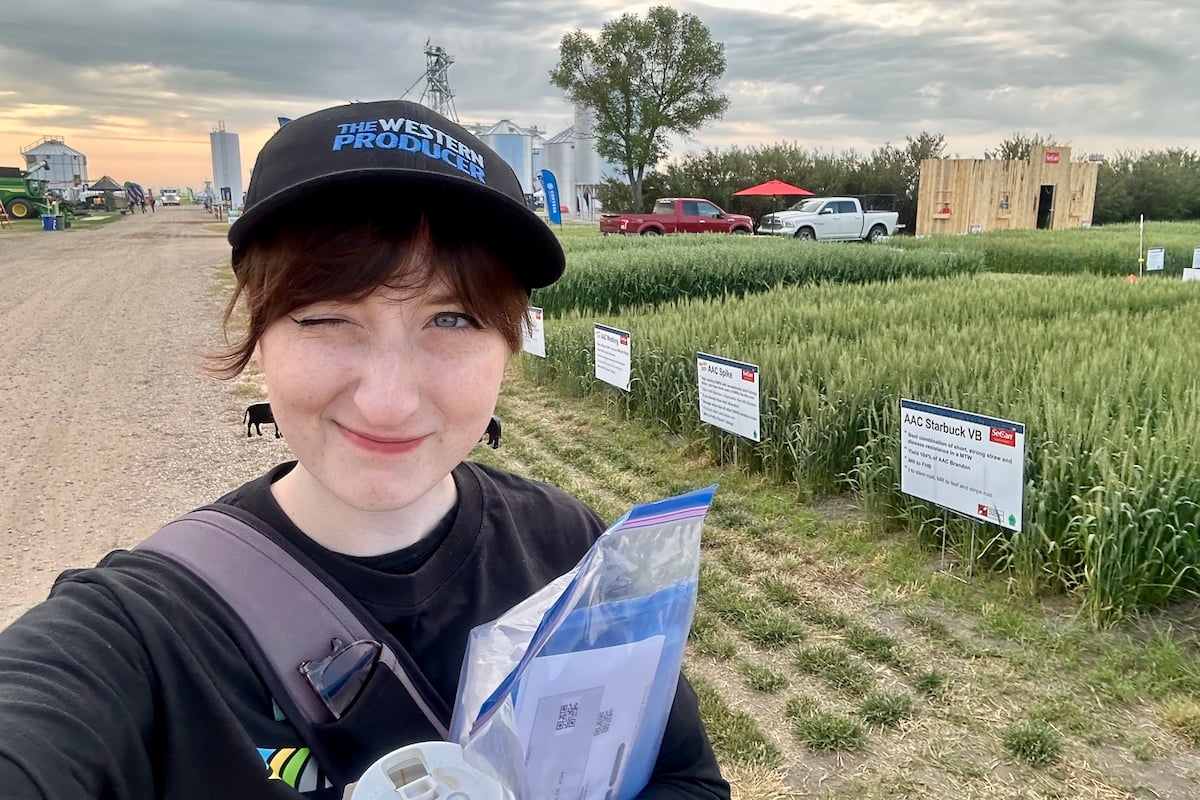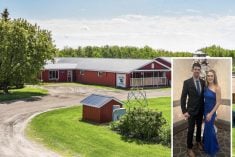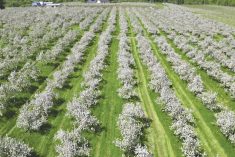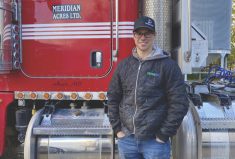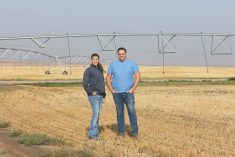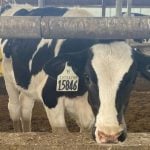In part three of our Making the Future series, Country Guide spoke with Emily McGovern from South Surrey, B.C. (Read part one, here.)
McGovern, 24, works on developing special content for marketing projects for Glacier FarmMedia, the parent company of Country Guide. She has a BA in linguistics and publishing from Simon Fraser University and has just finished her master’s thesis on the history of agricultural journalism in Canada.
Country Guide: Why did you decide on a career in the agriculture industry?
Read Also

How scientists are using DNA and climate data to breed crops of the future
A method for forecasting how crops will perform in different environments so that plant breeders can quickly select the best parents for new, climate-resilient varieties.
Emily McGovern: It’s just the passion of it. When I went into media journalism the ag industry wasn’t at the top of my list but I wanted something where I would learn something fresh, different and new. What I’ve learned is how vast this industry is. That was the reason I stayed because I saw potential to grow. If I want to move beyond ag media, I know there would be other areas that I could branch into that still touch ag without having grown up on a farm or having to work on a farm.
CG: What is your perception of the Canadian ag industry today? What excites you about it?
EM: The thing that excites me is the technology and sustainability that is at the forefront of a lot of the technology that people create. It amazes me that farmers are trying to make their work more efficient and the only people who are going to come up with these things are farmers. I think it is so important to support tech because it’s going to make farming easier, more efficient and more sustainable.
CG: What expectations did you have coming into the industry and how do they compare with your actual experience? As a young person coming into the ag industry, have you found it difficult to earn people’s trust and confidence, to show that you know what you are doing?
EM: I think it’s sometimes harder to get your footing in the industry but for me it was more difficult because I had no experience. When I started as an intern, I had to learn about the different kinds of equipment and the different seasons, when seeding happens, and all those pieces, so it was a bit of a learning curve.
Everybody that I interact with is older than me or they have a farm and, for example, maybe they are a fourth-generation farmer, so I definitely do have to earn the trust of the people that I work with and the farmers that I talk to. But it’s just a matter of appreciating it because what matters to them is their community, their growth and their family. For me it is a bit of a challenge but it doesn’t put me off the industry at all.
CG: What are your personal career goals and what new ideas and fresh approaches do you have to help benefit agriculture in your chosen field?
EM: I’m working on events promotion and marketing, and I would like to keep working in those roles and moving forward in a way that would strengthen our relationship with farmers. That’s important to me.
I’d like to see more efforts to include younger people in the ag space, and a chance for us to learn all the steps that are involved, starting at a younger age. In school, we don’t learn about how agriculture works or how the agricultural sector impacts Canada. As a young person I’d like to see more appreciation for how the agriculture sector functions in Canada.
What I would also like to see more of in the future is ways to help farmers because right now they’re doing it all. Farmers need to know so much about markets, finances, etc., but I think we need to help them with some of these things whether that’s through programs or other companies or whatever method — a way that helps farmers manage these pieces better, so they don’t have to do it all. Farmers are very versatile and must adapt to so many different challenges. Any bit of help we can provide is important.
Because what I see happen is a young person will look at their family farm and see their dad stressed out working on the farm managing everything on their own, and they may think “I don’t want that to be me, so I’m not going to take over the family farm.” You see that a lot with the younger generation and that’s not beneficial to the industry.
CG: How do you feel about the future of the industry and the role of ag media?
EM: I hear a lot that print is dying but I don’t necessarily believe that is true. I think where farmers get their sources from matters to them. A lot of people, especially my generation, get our news online, from social media. People from my generation don’t even read newspapers or magazines anymore which I think is sad because journalism and media is an art form.
But I don’t think that print is going anywhere. We’ve seen a big boom in people buying books and I think our turn for renewing newspapers is right around the corner. I am hoping that my generation will turn to new sources to get their news.
CG: If one day your children came to you and said they were considering a career in ag, what area of the industry would you encourage them to look at? Where do you see the best opportunities?
EM: We will need labour. Once this generation of farmers retire, we’re not going to have many people who know how to operate the machines or use the equipment so that will be a huge gap that we need to fill, and it offers huge potential for people who are looking for a career that they can do for a long time.
I would also say marketing because I think there’s a big space for growth in that sector as well, just from the way that media and marketing come together, we’re going to need that in the future.


